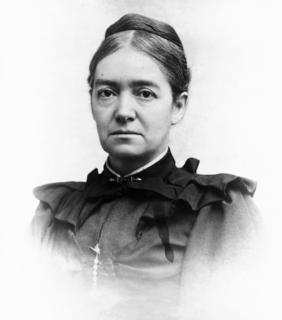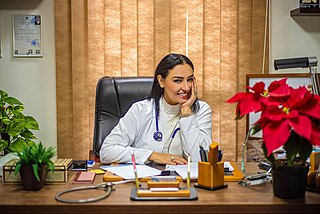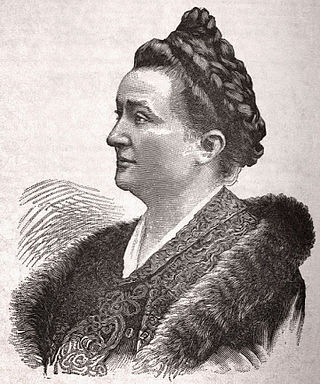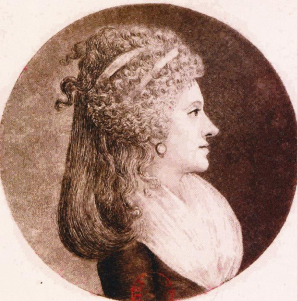
Jacques Bertillon was a French statistician and demographer.

Mary Corinna Putnam Jacobi was an English-American physician, teacher, scientist, writer, and suffragist. She was the first woman admitted to study medicine at the University of Paris and the first woman to graduate from a pharmacy college in the United States.

The presence of women in medicine, particularly in the practicing fields of surgery and as physicians, has been traced to the earliest of history. Women have historically had lower participation levels in medical fields compared to men with occupancy rates varying by race, socioeconomic status, and geography.

Madeleine Alexandrine Brès, born Gebelin, was a French pediatrician and the first French woman to earn a medical degree in 1875, with a thesis on breastfeeding.

Marie-Jeanne Lefrançois de Lalande, born Marie-Jeanne Harlay, was a French astronomer and mathematician.

Dr. Charlotte Johnson Baker was an American physician who was the first woman to practice medicine in San Diego, California. She practiced obstetrics and gynecology at St. Joseph's Hospital, where her husband, Fred Baker, MD, was a general practitioner. The Bakers were the first husband-and-wife physicians in San Diego.

Varvara Aleksandrova Kashevarova-Rudneva (c.1841–1899), was a Russian Empire medical doctor. Rudneva was the second woman in Russia to become a doctor, after Nadezhda Suslova. She was the first woman in Russia to become a doctor and to have completed their education at a Russian medical school, an event which occurred at a time when women were barred receiving training at such universities. Despite the ban against women studying at medical universities, she was given a unique permission to study for her desire to treat women patients who refused to be treated by male doctors due to their religious beliefs. Her attendance at St. Petersburg Medical Surgical Academy, and later medical practice, were thereby unique in Russia thus garnering attention from both the medical field and general public making her a notoriously controversial figure.

Eliska Vincent was a Utopian socialist and militant feminist in France. She argued that women had lost civil rights that existed in the Middle Ages, and these should be restored. In the late 1880s and 1890s she was one of the most influential of the Parisian feminists. She created extensive archives on the feminist movement of the 19th and early 20th centuries, but these have been lost.

Mary Elizabeth Latimer was an English-American writer, both of original works and translations.

Agnes Bluhm was a German physician, eugenicist, and winner of a Goethe medal. She believed that German women could improve the race using eugenics and forced sterilisation. She wrote that the "female psyche" made her gender predisposed towards working for "racial hygiene".

Sara Elizabeth Branham Matthews (1888–1962) was an American microbiologist and physician best known for her research into the isolation and treatment of Neisseria meningitidis, a causative organism of meningitis.
Mary Adamson Marshall was a physician and a member of the Edinburgh Seven, the first women to study medicine at the University of Edinburgh.

Céline Renooz was a Belgian feminist writer and activist known for her works on evolution, epistemology, and historiography.
Caroline Wormeley Latimer was an American physiologist known for her studies of rigor mortis and the salivary glands, and her popular science writing, which was widely read by women and girls.
Mélanie Lipinska (1865–1933) was a Polish-French physician and known as a historian of women in medicine. She received recognition for her thesis Histoire des femmes médecins, which she submitted to the Académie de médecine de Paris in 1900.
Katharine Ellis, is a British musicologist and academic, specialising in music history. Since 2017, she has been the 1684 Professor of Music at the University of Cambridge. She previously taught at the Open University, at Royal Holloway, University of London and at the School of Advanced Study, University of London, before serving as Stanley Hugh Badock Professor of Music at the University of Bristol (2013–2017).

Anna Hamilton was a French medical doctor, superintendent of the Protestant Hospital in Bordeaux for 34 years, and a proponent of professionalization in nursing.
Mary Chilton Noyes was a physicist known for being the first woman to earn a PhD from Western Reserve University and one of the first women to earn a PhD in physics from a United States institution.













